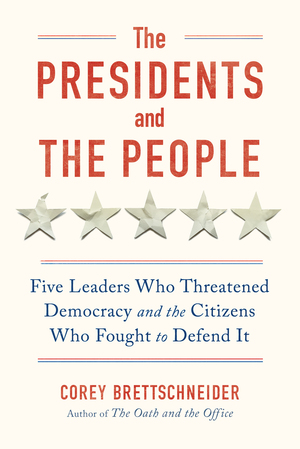The dynamic you describe here is one of crisis and recovery, this historically repeating pattern. When there’s crisis, we respond in some way with some kind of recovery. It doesn’t feel like recovery right now. Why do you think that is?
Even in the hopeful moments of the past that I described where there were recoveries, it takes time in each of them. So, in the Adams period, you do get a very serious recovery. Thomas Jefferson does say, “We’re all federalists. We’re all Republicans.” He doesn’t seek the renewal of the Sedition Act, but privately he seeks prosecution of political opponents. And it’s really only during James Madison’s administration, more than eight years later, that you see the power of the recovery because of his refusal to prosecute dissenters even during a war.
The recovery that I described after Woodrow Wilson was decades long. Trotter and Wells have an initial resistance to Wilson’s attempt to nationalize white supremacy, nationalize segregation, nationalize the idea of second-class citizenship. They confront him in the White House famously and speak out. But you need several more decades until you get the more serious recovery of the 1964 Civil Rights Act and the 1965 Voting Rights Act.
I’d say we really never did recover from Nixon. We got rid of Nixon, and the Ford and Carter presidencies are certainly improvements. And we do have this legislation — the independent counsel law, the Ethics in Government Act — which is a huge improvement over what we have now.
But what we need to really make that recovery finally happen is a citizen movement devoted to the idea that presidents really are not above the law, meaning that they can be prosecuted if they commit crimes. We’ve got to find a way to push back against this really outrageous invitation to authoritarianism that you saw in the Supreme Court decision by creating institutions that are supported by citizens. So that might not mean returning to the old independent counsel, but it certainly does mean an office of a people’s prosecutor that would be charged with investigating criminal presidents and being able to indict them.
